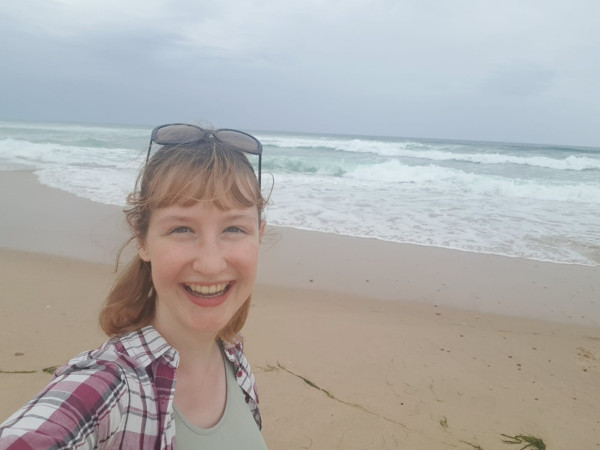Katja Moos
Interview by Nicola Nosengo, NCCR MARVEL on 27 May 2025
Have you always been interested in science?
I was a curious child. I was always asking a lot of questions and driving my parents crazy because I did things like waking them up at 3 in the morning to watch the moon. In primary school, mathematics and all technical subjects were easy for me. But I did not really have a passion for science until I was in high school. In the first two years there I had a math teacher who was so great and really ignited an interest for numbers. Then I got in touch with physics that quickly became a true passion. Initially, I started high school with the idea of studying law afterward, but the teacher wasn’t great, and I quickly realized that this wasn’t the path I wanted to pursue in the future. Another important factor were my parents, who never told me that science was too hard. Instead, they always encouraged me to pursue whatever I loved.

Katja Moos
How did you hear about the INSPIRE Potentials Program?
In two ways. First, I had a friend who did her bachelor thesis with Michael Schüler. He told her about the fellowship, and she knew I was also interested in theoretical aspects, so she told me. Then I attended a lecture by Michael in my first year of master’s in atomic physics and he mentioned it again. So, when I finally decided to do my thesis with him I remembered about it and applied.
What is the topic of your master’s project?
I am interested in antiferromagnets, especially in copper oxide. We are collaborating with another group at the Paul Scherrer Institut (PSI) that did the experimental part and are providing the data on this material. The challenge for Michel and me is to develop a code that simulates magnon-magnon interactions as precisely as possible, in order to reproduce experimental data and extend the theory beyond the limitations of Linear Spin Wave Theory. By gaining a deeper understanding of spin wave interactions, we aim to enhance our knowledge of magnetism and its behavior in antiferromagnets. The code is designed to be modular, extensible, and performance-oriented, and it will hopefully work for other materials with only a few adjustments as well. At the moment, we are discussing a possible journal publication with the experimentalists.
Do you think women face specific challenges in the sciences?
Here in Fribourg, we have the unique situation of having small class sizes, and during my bachelor's, the gender ratio was evenly split between women and men. But I guess in general the problem is that our society is not yet ready to accept that everybody can do everything. It will still need some time to outgrow this idea that physical sciences are more for men and social sciences more for women.
Any advice for young girls interested in science?
Speaking for myself, I wish I had started to appreciate computer science a bit earlier instead of when I was already in university. But other than that, my advice would be to follow your passion, and if you don’t know exactly what it is yet just try different things. And do not listen too much to what other people are saying. It’s your life, so only you can decide what is important for you. Find something you are happy to do every day.
What are your plans for the future?
I have just accepted Michael‘s offer to remain in his group and do my PhD at the Paul Scherrer Institute. So, for the next few years that’s the plan.
